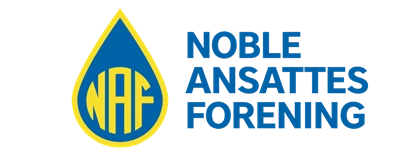Last month we could write here, that we were now just waiting for the final approval from the company, before we had a final agreement for our international employees in place.
But now it has happened that DSO has started negotiations with the company, but in parallel with us. We do not find this particularly appropriate for the case, and unfortunately it can only delay the project further.
In the spring of 2023, NAF informed the company that they should see it as a formal requirement from our side, that all our members with international employment, should be employed in Noble Drilling Norge AS. Our most important reason for this, was so that our leaders should also have good predictability, in order to be able to keep their workplace in Norway.
NAF subsequently had a meeting with DSO, where we agreed to do this together, in order to be able to take care of as many of our members as possible. Therefore, we had our first joint meeting with the company about this on May 16, 2023.
A new meeting with the company was held on June 12, 2023. But here DSO chose not to show up, and thus withdrew themselves from the negotiations.
Now it has happened that the same club has returned to the negotiating table with the company, but this time without us in NAF. This has unfortunately put a brake on the project, and in the worst case it could end up with the whole thing falling to the ground. This is very regrettable for those of our members, who have been looking forward to a quick decision, and a security to keep their current workplace in Norway.
We have spent a very long time reaching an agreement with the company, and we therefore have no faith that others can achieve a better result. The agreement that is ready for signing today, we believe is the best we can achieve, and it will provide good conditions, and security of employment, according to the principle of seniority.
The staffing situation:
If everything goes according to plan, we will hopefully get Intrepid to Norway, to drill a single hole for DNO, with an expected start-up on 1 August, lasting 50-90 days. This means that HR is busy planning how to handle this temporary need to staff a full XLE rig, and we are in dialogue with the company as well.
They agree with us, that they will prioritize some of the temporary workers, that they have used the most in the last few years, both when it comes to the continued need for temporary workers, but also when it comes to permanent employment. And there will be a need for permanent employment again.
The good news is that the company informs to us, that the customer for Invincible has requested a shuttle crew. This means that 6 floorhands, 3 planners, and 3 ass. crane operators will be hired within a short time.
Welding positions in NDN
We have agreed with the company, that we will continue with two permanently employed welders, at least for now.
Stripping drill course (AkerBP simulator)
This course in handling the well control situation on Invincible, is conducted in AkerBP's simulator, for the positions AD, AUX-AD, Driller, TP and DSL. The company agrees with NAF that it will be compensated according to 9.2 of the collective agreement, with 8 hours of overtime pay.
Well control level 2 course
As previously written here, the company has decided to add “Well control level 2 course” as mandatory on the course matrix, for the positions Operator Drilling and Hydraulic mech. Since this is a requirement from HAVTIL, it may be difficult to avoid. However, we have encouraged the company to provide more information about the course content and duration. We will update as soon as we know more about this.
Hydraulics - higher salary
NAF absolutely still believes that Hydraulics should have a higher salary, to match the other positions in the technical department. The fact that they now also must take Well control level 2 course, is just another argument among many. The company has so far said no, but we are by no means ready to close this case.
Safety meetings at Integrator
On some teams, safety meetings are only held in English. NAF believes that this is against Section 14 of the Framework Regulations, and we have therefore asked the company to rectify this.
Clause 3.7 of the collective agreement - The right to go ashore
The case is pending in the Labor Court. We will update as soon as there is a decision in the case.
Service Award Programme
The 5-year service award program has been introduced to legacy MD employees as per 1st January 2025, meaning that all employees regardless of legacy company are in the same program.
However, we backdated the program for legacy MD employees who reached a 5-year mark in 2024 (5, 10, 15, 20, 30, 35, 45 etc.), so they were awarded for their service. Everybody else will become part of the program as soon as they reach a 5-year mark.
However, since the Noble Benefit Policy is not fully completed, we have not yet removed the legacy MD process for 25- or 40-, year anniversary, so that continues until further notice.
The gifts included in the 5-year program are actually 2-folded:
- The employee can chose either a lapel pin or charm for a bracelet and the cost ranges pending on how many years the employee has reached.
- The employee can choose from a range of gifts, relevant for the number of years of service. There are lifestyle items as well as jewelry and watches. The cost ranges pending on the number of years, the employee has reached (anything from USD 400 to over USD 7,000 at 40 years).























































.jpg?w=86&h=86&bg=ffffff)
































